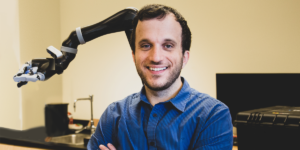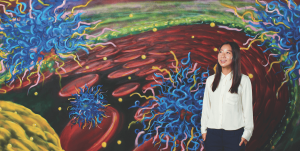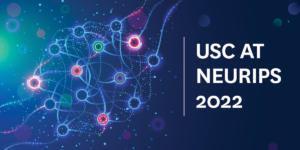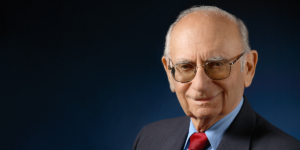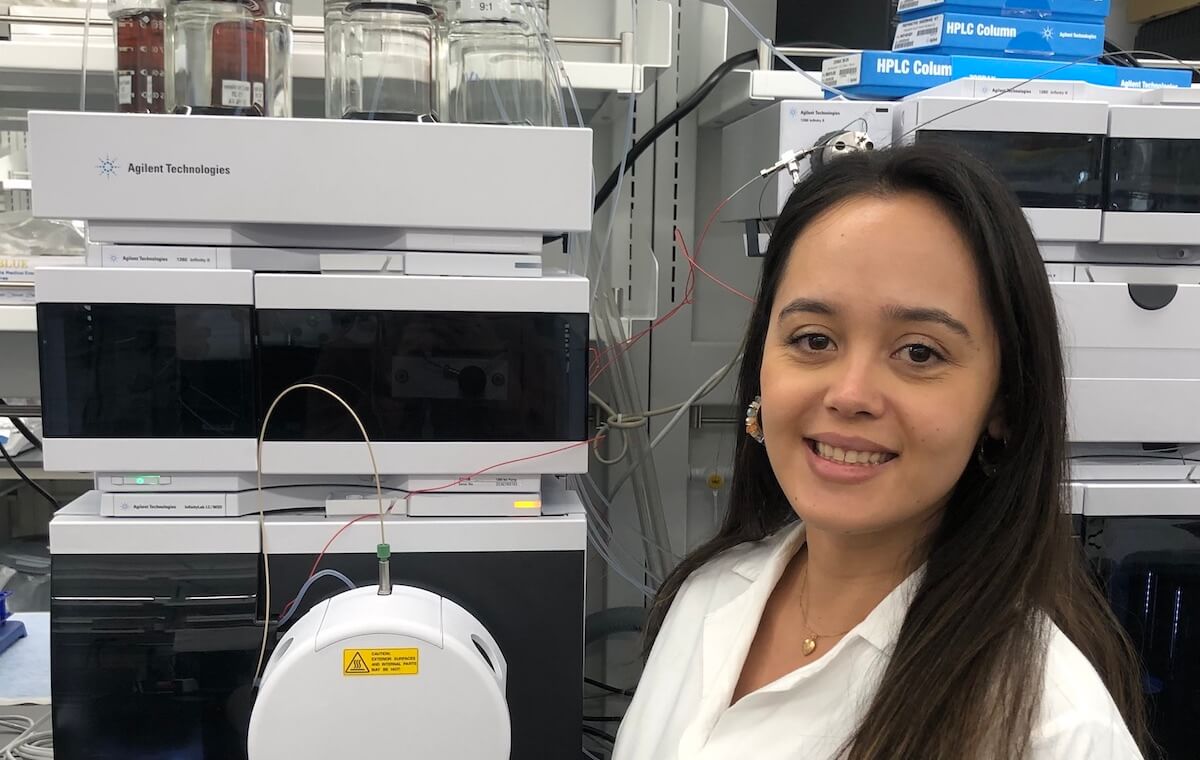
Isabella Suzuki works within USC’s Biomaterials and Nanomedicine Research Laboratory. Image/Isabella Suzuki
Postdoctoral researcher in the USC Alfred E. Mann Department of Biomedical Engineering Isabella Suzuki has been awarded the 2023 Agilent Fellowship, a prestigious two-year postdoctoral fellowship offered through USC’s Agilent Center of Excellence in Biomolecular Characterization, the result of a partnership between Agilent Technologies and the USC Michelson Center for Convergent Bioscience.
Suzuki works within USC’s Biomaterials and Nanomedicine Research Laboratory under the supervision of Dr. Karl Jacob Jr. and Karl Jacob III Early-Career Chair and Associate Professor of Biomedical Engineering, Chemical Engineering and Materials Science, and Medicine Eun Ji Chung. Suzuki received her Ph.D. in Pharmaceutical Sciences from the University of São Paulo. The Agilent Fellowship is one of many prestigious accomplishments throughout her scientific career. In 2018, Suzuki was awarded a Graduate Research Fellow position at Harvard University from CAPES-PDSE.
Suzuki’s research is centered around treatment for atherosclerosis, an inflammatory disease characterized by the buildup and rupture of plaque in arteries, which can lead to heart attacks and strokes. She is researching targeted therapies to reduce atherosclerosis, in particular, a nanoparticle that can deliver a specific microRNA molecule (microRNA-145) to cells to evaluate how it affects the mitochondria—the structures in our cells that generate energy. Suzuki said that plaque rupture in arteries is highly associated with mitochondrial dysfunction.
The current protocol is to prescribe statins to patients with atherosclerosis in an attempt to lower cholesterol levels. Yet many patients will still experience acute symptoms. Other patients don’t respond to the statin or decide to stop treatment due to side effects. Suzuki’s research aims to develop a promising therapeutic alternative to this existing protocol.
When speaking about the real-world application of her research, Suzuki said she hopes it will help to “increase the possibilities of providing effective medical options and improving the well-being of patients.”
As an Agilent Fellow, Suzuki will have access to first-in-class research instruments, be paired with a primary mentor at USC, work with the Agilent University Relations Program Manager, and be able to conduct her research in state-of-the-art facilities. One Agilent Fellowship is awarded yearly for a two-year term, offering recipients an annual stipend of $81,000.
When asked how she felt about being awarded this fellowship, Suzuki said she felt a “mixture of joy, pride and accomplishment.”
“What I love most about my work is the opportunity always to be learning new things and to collaborate and lead people towards a greater and beneficial purpose,” Suzuki said. “To be within the academic environment is to be within a dynamic environment, with many challenges and many achievements, which is all very rewarding. For me, doing research is a great opportunity to collaborate for the improvement of our society and to produce impactful science.”
The Agilent Fellows Program is coordinated by USC’s Agilent Center of Excellence in Biomolecular Characterization. Agilent Technologies, a pioneer in life science, diagnostics, and applied chemical markets, partnered with USC’s Michelson Center for Convergent Bioscience to establish this research facility where scientists and engineers can collaborate on multidisciplinary approaches for the development of new drugs, diagnostics, and medical devices.
Published on February 23rd, 2023
Last updated on February 23rd, 2023




